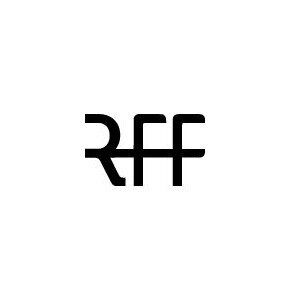Best Water Law Lawyers in Lisbon
Share your needs with us, get contacted by law firms.
Free. Takes 2 min.
List of the best lawyers in Lisbon, Portugal
About Water Law in Lisbon, Portugal
Water Law in Lisbon, Portugal, pertains to the body of legal rules and principles that govern the management, use, and protection of water resources within the city and across the country. This area of law covers a wide range of subjects, such as ownership, access rights, distribution, conservation, and the protection of water quality. Portugal’s legal framework for water is largely influenced by European Union directives but is implemented through national and local statutes and regulations. In Lisbon, the abundance of rivers and proximity to the Atlantic make water law particularly significant for matters including urban water supply, pollution control, irrigation, commercial activity, and environmental sustainability.
Why You May Need a Lawyer
There are many situations in which individuals, businesses, or organizations may require legal assistance with Water Law issues in Lisbon. Some common scenarios include:
- Disputes over water usage rights among property owners or between private citizens and government authorities.
- Permitting processes for wells, boreholes, or other forms of water extraction.
- Regulatory compliance involving water quality standards for industrial activities, construction sites, or agricultural operations.
- Allegations of water contamination or pollution, requiring defense or pursuit of environmental claims.
- Conflicts related to public and private water supply systems or infrastructure projects impacting water flow and access.
- Urban planning or real estate developments that necessitate impact assessments on water resources.
- Litigation or negotiations concerning compensation for damages caused by flooding, drought, or other water-related events.
Given the technical complexity and evolving nature of regulations, having a qualified lawyer can help you understand your rights and obligations, represent your interests with authorities, and ensure compliance with relevant laws.
Local Laws Overview
The key regulatory framework for Water Law in Lisbon is set by Portugal’s national Water Law (Lei da Água), which implements the European Water Framework Directive. This law aims to ensure the sustainable management of water resources, balancing human needs with environmental protection. Main aspects include:
- Water Ownership - Most water resources in Portugal are considered public property, managed by state or municipal authorities, but private use may be permitted subject to licensing.
- Licensing System - Extraction, use, and discharge of water often require permits issued by local or national water authorities.
- Quality Standards - Regulations set mandatory water quality standards for drinking water, surface water, and wastewater discharge.
- Environmental Protection - Laws require environmental impact assessments for projects likely to affect water resources and impose obligations to restore or mitigate damage.
- Public Participation - Stakeholders, including residents and businesses, can participate in water management planning through consultation processes.
- Sanctions and Enforcement - Authorities can impose penalties, order remediation, or suspend permits for violations of water laws.
In Lisbon specifically, the city council and regional water agencies play key roles in local policy implementation and oversight.
Frequently Asked Questions
What types of water resources are covered by Water Law in Lisbon?
Water Law covers rivers, streams, lakes, aquifers, reservoirs, and coastal waters, as well as groundwater and certain public supply systems.
Who owns the water in Portugal?
Nearly all natural water resources are public property and managed by the state or municipalities; private ownership of water is highly restricted.
Do I need permission to drill a well on my property?
Yes, drilling a well or any groundwater extraction typically requires a license from the competent water authority, even for private use.
How is water quality regulated in Lisbon?
Water quality is regulated through national and EU standards, with monitoring by local water authorities. Drinking water suppliers must meet strict safety criteria.
Can I be fined for illegal water extraction or pollution?
Yes, unauthorized water extraction or causing pollution can result in substantial fines, criminal charges, or civil liability.
What should I do if I discover water pollution on my property?
Report the issue immediately to the local environmental or water authority. Legal action may be possible to seek remediation or compensation.
Are water rights transferable in Lisbon?
Generally, water use rights are connected to the land or activity and are not freely transferable between individuals, but there may be exceptions for agricultural or industrial purposes.
Does Water Law affect real estate development?
Yes, property developments often require water use permits and environmental impact assessments, especially if they may affect local water resources.
How can I participate in decision making about water management?
Residents and stakeholders can take part in public consultations held by local or regional water agencies as part of planning processes.
Who enforces Water Law in Lisbon?
The main enforcement bodies are the Portuguese Environment Agency (Agência Portuguesa do Ambiente), regional water administration authorities, and local municipal offices.
Additional Resources
If you need more information or assistance regarding Water Law in Lisbon, Portugal, consider contacting or consulting the following entities:
- Agência Portuguesa do Ambiente (APA) - The Portuguese Environment Agency oversees national water policy and enforcement.
- Câmara Municipal de Lisboa - The Lisbon City Council provides information on local regulations and permits.
- Administrações de Região Hidrográfica (ARH) - Regional Water Authority responsible for licensing and management of water resources in their jurisdictions.
- Faculties of Law at major universities in Lisbon may have research centers or legal clinics specializing in environmental and water law.
- Private law firms and environmental consultancies with expertise in licensing, compliance, and dispute resolution.
Next Steps
If you believe you need legal advice or representation in a Water Law matter in Lisbon, consider the following steps:
- Clearly identify your issue and gather all relevant documentation, such as permits, contracts, correspondence, and technical reports.
- Consult the official websites and offices of the agencies listed above for guidance on initial administrative procedures and requirements.
- Seek an initial consultation with a lawyer experienced in Water Law or environmental law in Portugal.
- Ask about their experience with local authorities and their approach to resolving regulatory or dispute issues.
- Work collaboratively with your legal representative to pursue the best outcome, whether through administrative remedies, negotiation, or, if necessary, court action.
Water Law is a complex and evolving field, so do not hesitate to seek professional guidance to protect your rights, interests, and the environment.
Lawzana helps you find the best lawyers and law firms in Lisbon through a curated and pre-screened list of qualified legal professionals. Our platform offers rankings and detailed profiles of attorneys and law firms, allowing you to compare based on practice areas, including Water Law, experience, and client feedback.
Each profile includes a description of the firm's areas of practice, client reviews, team members and partners, year of establishment, spoken languages, office locations, contact information, social media presence, and any published articles or resources. Most firms on our platform speak English and are experienced in both local and international legal matters.
Get a quote from top-rated law firms in Lisbon, Portugal — quickly, securely, and without unnecessary hassle.
Disclaimer:
The information provided on this page is for general informational purposes only and does not constitute legal advice. While we strive to ensure the accuracy and relevance of the content, legal information may change over time, and interpretations of the law can vary. You should always consult with a qualified legal professional for advice specific to your situation.
We disclaim all liability for actions taken or not taken based on the content of this page. If you believe any information is incorrect or outdated, please contact us, and we will review and update it where appropriate.

















